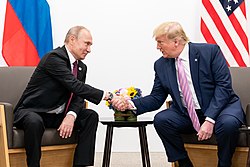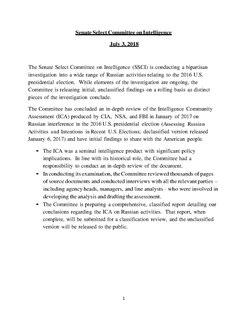| Trump–Russia relations |
|---|
 |
This is a timeline of major events in second half of 2018 related to the investigations into links between Trump associates and Russian officials relating to the Russian interference in the 2016 United States elections. It follows the timeline of Russian interference in the 2016 United States elections before and after July 2016 up until election day November 8, and the transition, the first and second halves of 2017, and the first half of 2018, but precedes that of the first and second halves of 2019, 2020, and 2021. These events are related to, but distinct from, Russian interference in the 2018 United States elections.




























